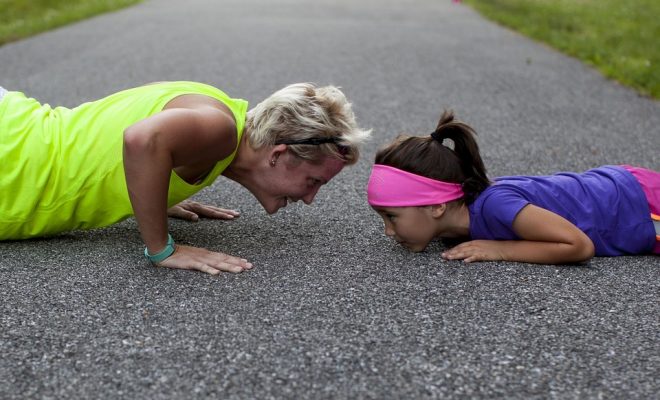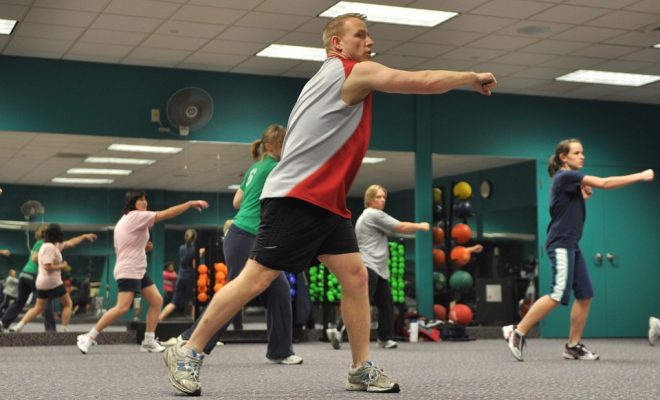Pull Your Own Weight: Confused priorities in childhood obesity prevention

**The Edvocate is pleased to publish guest posts as way to fuel important conversations surrounding a P-20 education in America. The opinions contained within guest posts are those of the authors and do not necessarily reflect the official opinion of The Edvocate or Dr. Matthew Lynch.**
A column by Rick Osbourne
There are two sides to the childhood obesity coin including the rehab side (approximately 10 percent of kids who are already obese) and the rrevention side (approximately 90% of kids, many of whom are not yet, but who will BECOME obese unless they do something to actively prevent it in the future).
The problem arises when these two are mixed together and addressed as if they’re just one big problem. Under these circumstances the tendency is for the rehab side to attract most of the attention at the expense of the prevention side.
This is true despite the fact that historically speaking, no epidemic has ever been rehabbed into submission. The mentality is, “Why fix something that ain’t broke…yet? Let’s first take care of those kids who are currently wrestling with the problem, and address the prevention issue later.”
The fateful step
Once that well-intended step is taken researchers go about identifying all the potential causes, culprits, and contributors to the epidemic. With a full slate of culprits in hand, the researchers then announce that, due to the sheer number of causes, THERE IS NO SINGLE/SIMPLE SOLUTION TO OBESITY.
Logically speaking, they contend, there must be many solutions to accommodate all the causes. Then we must address them all simultaneously (extremely complicated), spend billions in the process (extremely expensive), over at least a generation (extremely time consuming) in order to bring this pervasive problem to a satisfactory conclusion (extremely speculative).
Now let’s recognize that this entire scenario has developed because, when it came time, the decision makers CHOSE to focus first on rehab, and to let prevention sit on the sidelines while they got a handle on the rehab side FIRST. In other words they chose to address rehab at the expense of prevention. So what would have happened if they’d chosen to address prevention first?
What if the priorities were reversed?
The first consequence of addressing prevention first is that the problem itself becomes vastly simpler almost immediately because in this group, weight loss is not an issue. As the result there’s no need for these kids to change their exercise or eating habits. There’s no need to reduce their screen time. There’s no need for more PE in school, bike paths through the neighborhoods, or to point the finger of blame at genetics, ethnicity, economics, or Ronald McDonald. Because these kids are not obese YET!
However, if projections are accurate, many of these very same kids will become obese UNLESS they do something to actively prevent obesity from creeping up on them in the future.* There are actually a number of simple solutions to this problem, but for simplicity’s sake let’s talk about just one of them.
One simple solution
Parents and/or teachers could start young (before the obesity seed takes root) and help their kids learn to do at least one conventional pull up, because statistics confirm that human beings who can do so are ALMOST NEVER OBESE! And if they maintain the ability (which requires decent eating and exercise habits and 30 seconds per week) they’ll never become obese or suffer from the myriad of problems that follow in its wake.
Allow me to repeat that one more time for clarity sake: If kids learn to do pull ups, then walk over to the closest tree limb once a week throughout their lives and perform at least one conventional pull up (which requires decent eating and exercise habits and almost no time), odds are they’ll never be obese or suffer from the myriad of related problems! How simple is that?
What about the 10 percent who are already obese?
Once a successful prevention project is established, THEN the question becomes, what can be done about the 10 percent of kids who are currently wrestling with obesity and all the related issues? How can they benefit from this prevention (not rehab) oriented, simplification strategy?
The answer to that question can be covered with one word – motivation. In order to learn to physically pull their own weight (and rehab themselves), obese kids have to improve their eating and exercise habits in order to become STRONG ENOUGH and LIGHT ENOUGH (it requires both) to physically pull their own weight. There’s no choice.
Self-motivation!
But once they understand that the ability to do even one conventional pull up eliminates one of their biggest problems, and once they begin experiencing frequent success in pursuit of this goal, obese kids can get SELF-MOTIVATED ENOUGH to improve their eating and exercise habits, on their own, without outside help, in order to achieve this one simple goal. At that point, just get out of their way and let ‘em do it!
*Supposedly 33% of adults are normal weight, another 33% are overweight, and 33% are obese.
—
Rick Osbourne is former physical educator and a pioneer in the field of functional childhood obesity prevention. He currently serves as President of the Pull Your Own Weight Foundation which is an Illinois based, 501c3, not for profit organization whose focus is functional childhood obesity prevention. He’s written and published three books in this field, the latest of which is entitled Beating Childhood Obesity Now: A Simple Solution for Parents and Educators. He’s the Examiner’s national childhood obesity prevention correspondent. He writes an online column for The Edvocate. And you can connect with Rick via Twitter, Linkedin, or Facebook.




